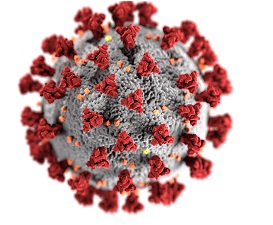Researchers at Laboratory of Biomedical Nanomaterials of National Research Technological University MISiS (NUST MISiS) have come up with a new method to diagnose and treat coronavirus patients, which will help prevent secondary tissue inflammation, which is extremely dangerous for COVID-19 patients. The study results were published in the Frontiers in Immunology journal.
https://www.frontiersin.org/articles/10.3389/fimmu.2020.01896/full
The scientists have suggested using MAIT cell activity inhibitors for secondary infections in COVID-19 patients.
According to the authors of the study, there is a type of immune cells in humans and other mammals, associated with mucous membranes, MAIT cells. In humans, these cells are found in the blood, liver and lungs, for example. They perform protective functions, finding, identifying and destroying bacteria, fungi and other pathogens. MAIT cells cause tissue inflammation when these pathogens appear.
The experts noted that severe COVID-19 patients often require invasive mechanical ventilation, which takes a long time (the average of 9 days) and can lead to hospital- and ventilator-acquired diseases. Secondary (developed while having the coronavirus) bacterial or fungal infections were found in every seventh COVID-19 patient. In this case, additional tissue inflammation caused by MAIT cells can complicate the coronavirus patient’s condition.
“In general, these cells are useful, since they serve as a protection from bacterial or fungal infections. But with an already developed viral infection and a high level of inflammation, MAIT cells’ activity can aggravate the disease. According to published scientific data, there is reason to believe that this activity is developing – this can be seen in the cytokine profile, as well as based on secondary infections spread in COVID-19 patients; but this certainly requires further study,” Roman Akasov, a co-author of the study, a researcher at Laboratory of Biomedical Nanomaterials of NUST MISiS, said.
According toAkasov, MAIT cell activation was described in viral infections, including herpes, hepatitis and lethal influenza. Recently, several studies have appeared, studying the connection between MAIT cells and COVID-19. They have shown that these cells accumulate in the lungs, and the degree of their activation is associated with the severity of the disease, although the nature of this connection isn’t yet known.
Based on the published data, Russian experts have suggested using MAIT cell activity inhibitors, substances suppressing their action and preventing additional inflammatory factors. This can help avoid complications that are extremely dangerous in COVID-19.
“MAIT cell activation is a prime example of how complex our immune system is and what mistakes it can make,” Akasov said.
The article also noted that studying the interaction between the host (human) and its microbiota (the collection of microbes in the body) is of great importance for understanding the coronavirus development and treating. Co-infections play an important role in respiratory illness severity, while their involvement in COVID-19 is still little discussed.
The study involved NUST MISiS experts, together with their colleagues from Federal Research Centre “Crystallography and Photonics,” RAS, and First Moscow State Medical University.
